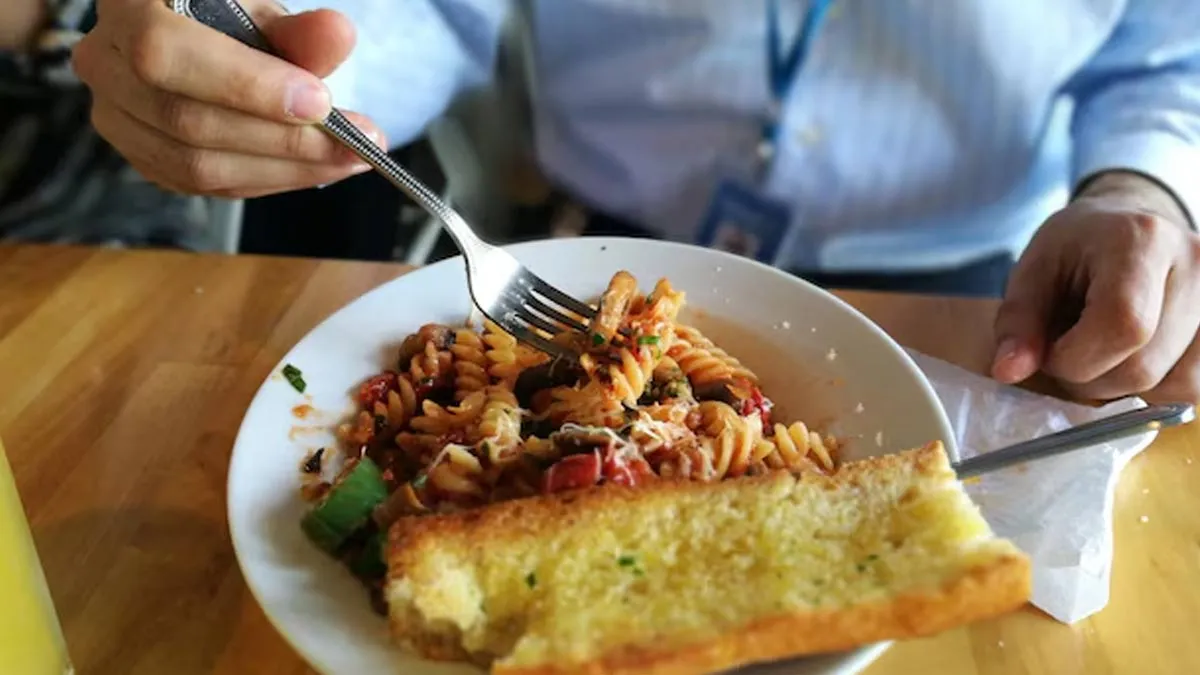
Have you ever found yourself pairing rice with potatoes or digging into a plate of pasta with a side of garlic bread, and calling it comfort food? But here’s the catch: that comforting combo of two starchy carbs in one meal, known as double carbing, might be quietly slowing down your body’s fat-burning engine.
Table of Content:-
We spoke to Dr Archana Batra, a Dietician and Certified Diabetes Educator, Gurugram, India, who explained this double carbing and how it can spike blood sugar levels, trigger insulin surges, and over time, make it harder for your body to burn fat effectively.
What is Double Carbing?

"Double carbing is when you eat two starchy carbohydrates in the same meal, like pairing rice with potatoes, roti with dal and rice, or pasta with a side of garlic bread. These combos are common in everyday meals because they’re filling and familiar. However, it does not add any nutritional variety from fibre and protein but significantly increases the glycemic levels in the body," said Dr Batra. Over time, this habit can make it harder for your body to burn fat efficiently and can mess with your energy levels too.
According to the Linus Pauling Institute, foods with a high GI are rapidly digested and absorbed, leading to quick increases in blood glucose levels. When multiple high-GI foods are consumed, the combined effect can be more pronounced, leading to higher insulin levels.
Also Read: Myth Or Fact: Can Sparkling Water Help Manage Weight Loss?
How Double Carbing Affects Fat-Burning

Over time, doubling up on the high-GI can divert your body's fat-burning mechanism, which would be challenging for weight management and metabolic health. Double carbing increases your carbohydrate and calorie intake, which could result in blood sugar spikes and energy crashes.
Impact of Double Carbing on Blood Sugar Levels
Taking multiple carbs can lead to a spike in the blood sugar levels in your body. In response to that, your body releases a hormone called insulin, which is responsible for the transportation of glucose from your bloodstream to body cells. "Insulin is also called a fat-storing hormone. High insulin levels do not burn the body fat immediately; instead, they store everything you are not using. So instead of burning calories, your body shifts to storage mode, packing away excess energy for later," added Dr Batra.
Insulin Resistance and Weight Gain

Double carbing causes insulin spikes in your body, which can result in energy crashes, sugar cravings, and, over time, insulin resistance. This is when your body fails to respond to insulin effectively making it more difficult to lose fat and easier to gain weight.
According to a study in the American Journal of Clinical Nutrition, excessive refined carbohydrate consumption can raise insulin resistance risk. It is a condition where the body's cells lose sensitivity to insulin, leading to high blood sugar and fat storage.
Also Read: Suffering From GI Disorders? Here’s Why You Should Try The FODMAP Diet
How To Break The Cycle?
Choose only primary carb meals. For example, skip fried when you're eating a burger or avoid bread if you're having pasta.
Along with carbs, add lean proteins (beans and lentils), healthy fats (walnuts, fatty fish, and avocado) and fibre-rich veggies (carrots, broccoli, and green peas) to stabilise your blood sugar levels and control the cravings.
Bottomline
Dr Batra concluded, "Double carbing can make you feel comfortable, but it can dim your fat-burning fire. Simple, healthy swaps can help you overcome this issue and maintain better energy levels, sharper focus, and metabolism. Small changes can lead to big results. Being mindful of how we pair our carbs can make a significant difference in how our body stores and uses energy."
[Disclaimer: This article contains information provided by an expert and is for informational purposes only. Hence, we advise you to consult your professional if you are dealing with any health issues to avoid complications.]
How we keep this article up to date:
We work with experts and keep a close eye on the latest in health and wellness. Whenever there is a new research or helpful information, we update our articles with accurate and useful advice.
Current Version
Apr 24, 2025 21:30 IST
Published By : Chanchal Sengar